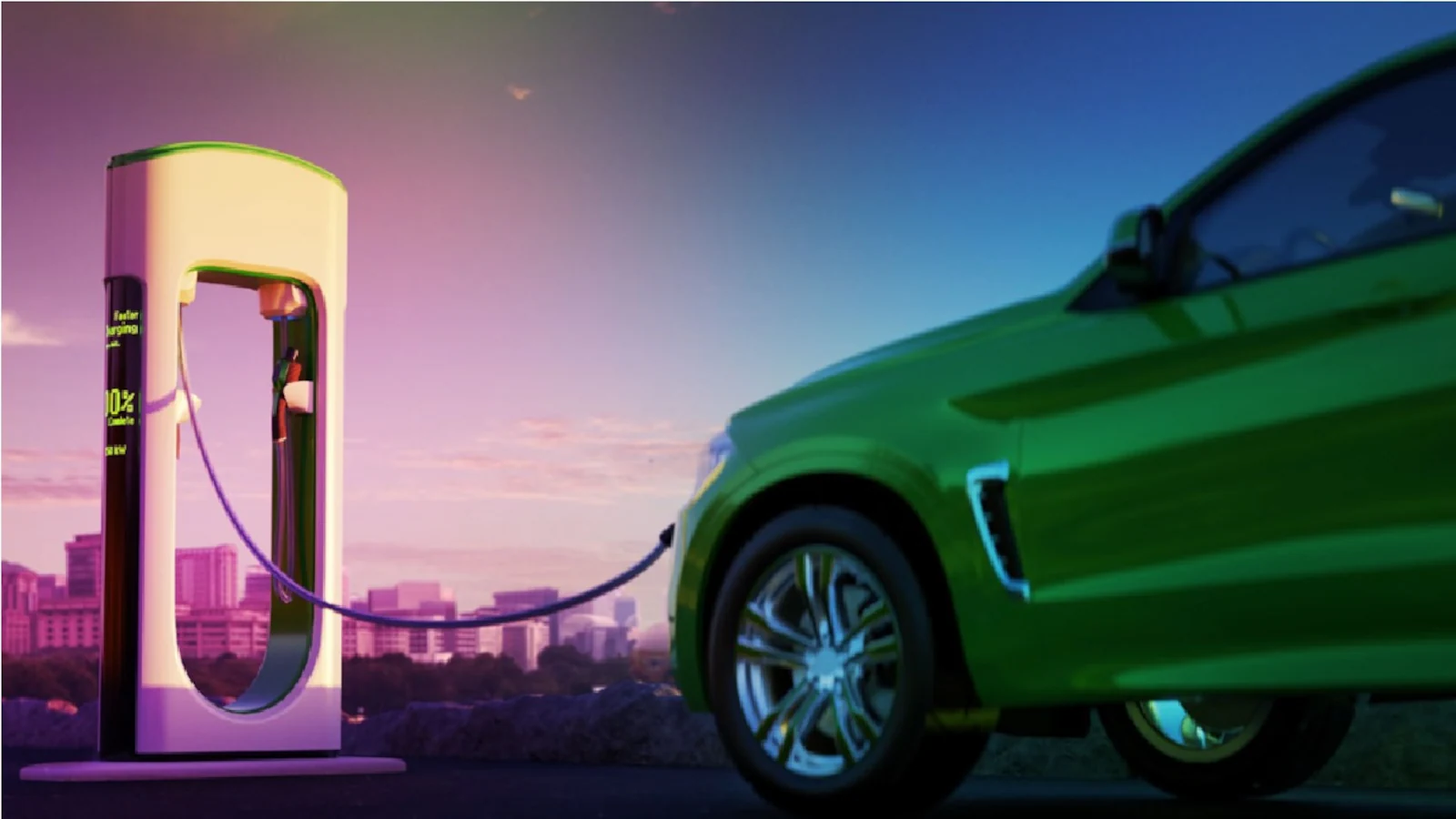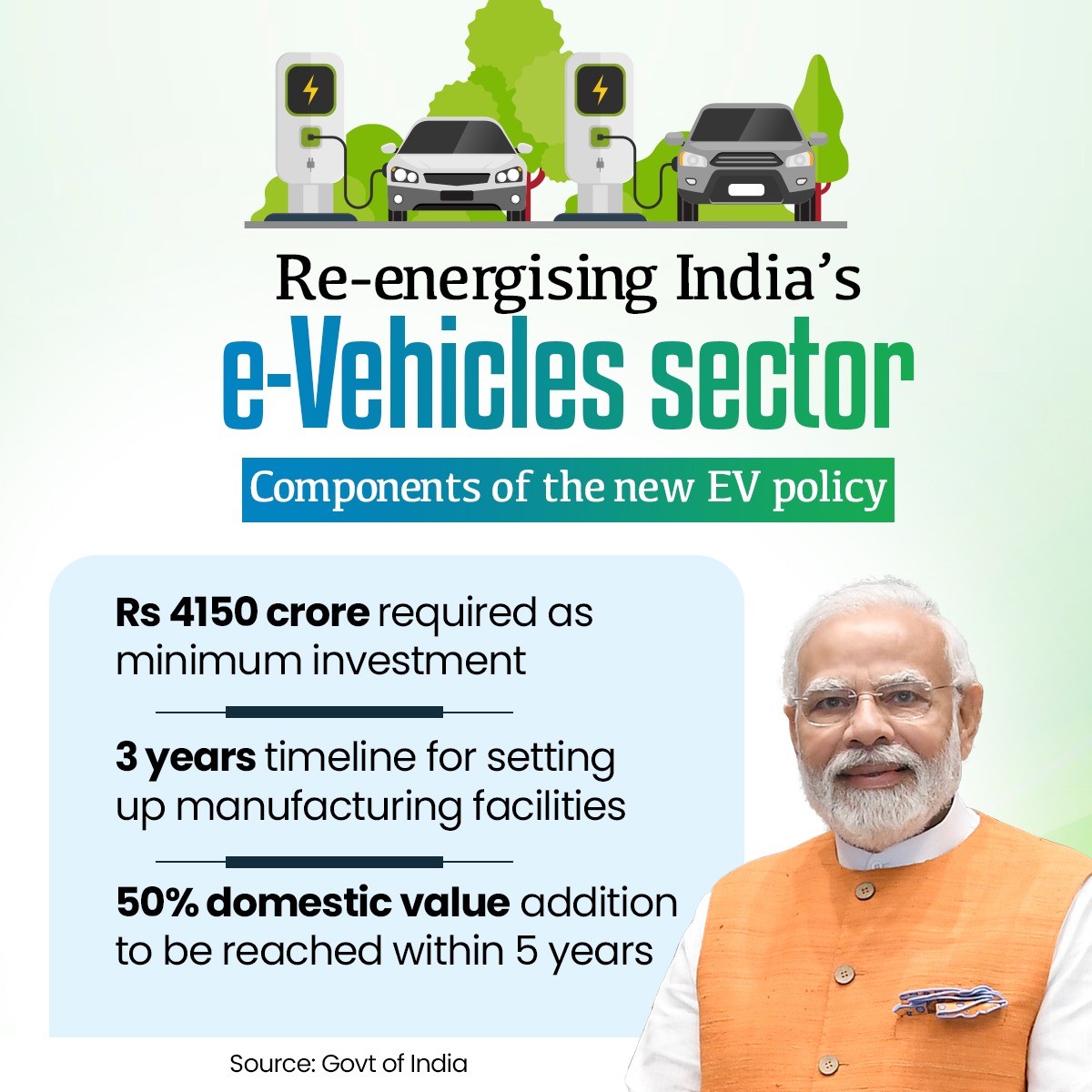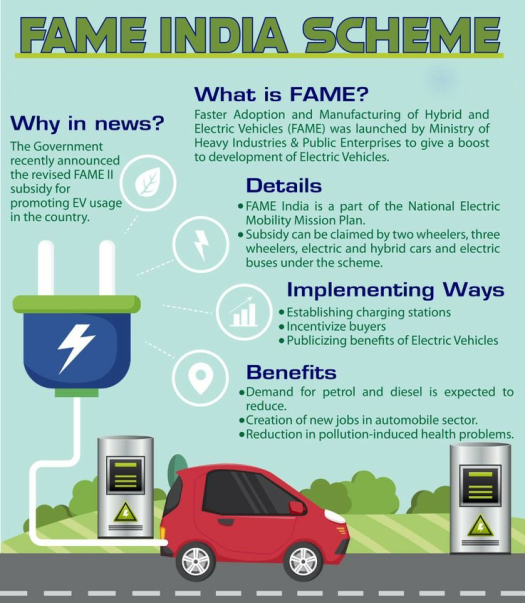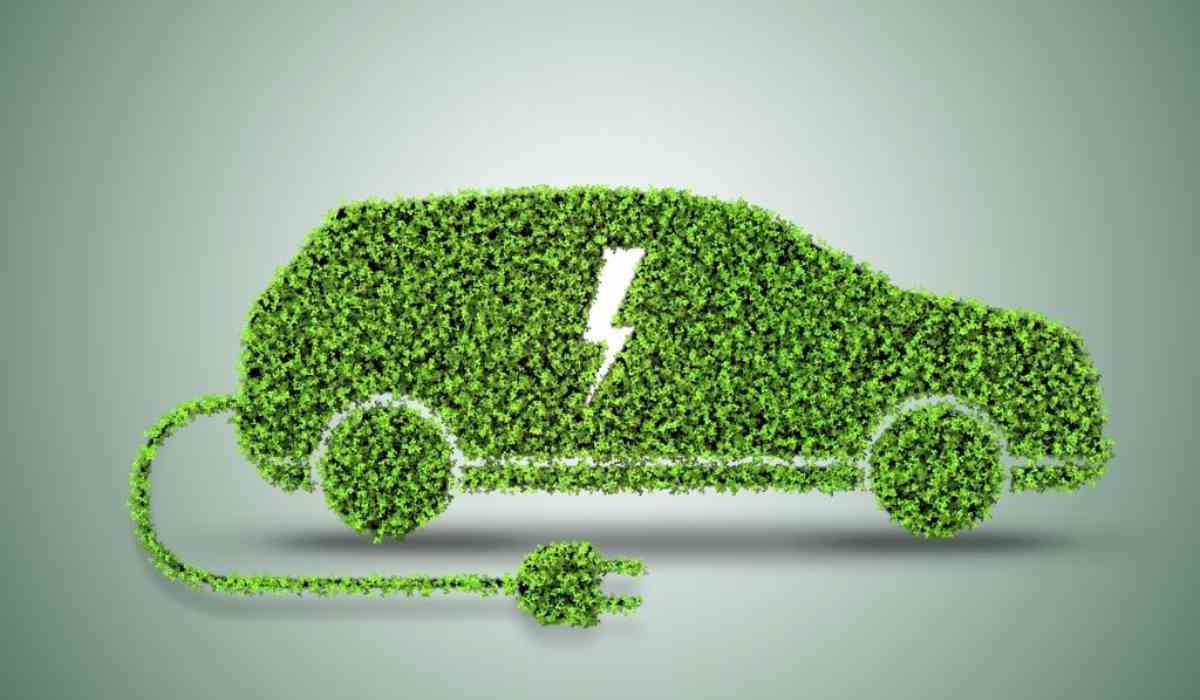India's electric vehicle (EV) sector is poised for a major transformation as the central government prepares to implement a new EV policy, originally announced in March 2023. With the aim to attract global investments and boost local manufacturing, the policy is designed to create a robust ecosystem for the EV market in India. As automakers both from India and abroad gear up for compliance, the new policy offers several incentives and mandates that will shape the future of EV production in the country.

Key Features of India's New EV Policy
The proposed policy outlines significant provisions aimed at encouraging foreign and domestic automakers to invest in India's electric vehicle ecosystem. Key aspects include:
Investment Requirements and Import Duty Reduction
-
Minimum Investment: To establish EV assembly operations within existing factory premises, companies must infuse a minimum of Rs 4,150 crore (approximately $500 million) in new capital, excluding expenses on land and buildings.
-
Import Duty Reductions: Automakers who meet these investment criteria will benefit from a reduced import duty of 15%, a steep reduction from the current tariff of 110%. This move aims to incentivize the importation of premium EVs and promote local manufacturing.
-
Time Frame for Compliance: Automakers will have 120 days to apply once the policy is officially notified. They must establish operational production facilities within three years and adhere to specific domestic value addition (DVA) requirements, starting at 25% and increasing to 50% over five years.
Turnover Targets and Long-Term Projections
-
The policy sets clear turnover targets to ensure consistent growth:
-
Rs 2,500 crore by the second year of operation
-
Rs 5,000 crore by the fourth year
-
Rs 7,500 crore by the fifth year
-
These goals are structured to encourage automakers to ramp up their operations and establish a significant presence in India's growing EV market.

Tesla's Role in India's EV Landscape
Tesla, one of the most anticipated beneficiaries of the new policy, is expected to play a key role in India's EV transformation. However, the company's official engagement with the Indian government remains somewhat unclear, despite strong speculations about its entry.
Tesla’s Entry into India
-
Launch Timeline: Tesla plans to enter India in April 2025 with a new model priced at approximately Rs 21 lakh. Initially, the company will rely on imports from its Berlin Gigafactory but is expected to gradually ramp up local procurement as it establishes a foothold in India.
-
Retail Expansion: Tesla has already finalized two showroom locations—one in Mumbai’s Bandra-Kurla Complex and another in Delhi’s Aerocity. Both showrooms, approximately 5,000 square feet in size, will serve as part of Tesla’s retail expansion strategy in India.
-
Manufacturing Prospects: The Maharashtra government has reportedly offered Tesla potential manufacturing sites in Pune's Chakan and Chikhali regions, known for their strong industrial infrastructure. Other automakers such as Tata Motors, Mercedes-Benz, and Volkswagen already have operations in this region, making it a viable location for Tesla’s potential production facility.
Government's Vision and Market Growth
The Indian government’s strategy is not just to attract foreign players like Tesla but also to ensure that local companies contribute significantly to India’s EV ecosystem. This approach aims to make India an essential player in the global EV revolution while also strengthening domestic manufacturing capabilities.
The Growing EV Market in India
India’s EV market has seen exponential growth, with sales increasing by 500% between 2021 and 2023. Projections show that the sector could reach $7.09 billion by 2025 and expand to $206 billion by 2030, creating opportunities worth $180 billion in cumulative investments.
Government Initiatives to Drive EV Adoption
The Indian government has already launched several schemes to support EV growth, including:
-
FAME Scheme: Launched in 2015 and expanded in 2019 with a budget of Rs 10,000 crore, the Faster Adoption and Manufacturing of Electric Vehicles (FAME) scheme has played a crucial role in incentivizing automakers to develop subsidy-eligible EV models.
-
Revised EV Policy (March 2024): This policy offers attractive incentives for foreign EV makers, including a reduction in the import duty for vehicles priced above $35,000. The policy also requires these companies to invest at least $500 million in the Indian market and achieve 50% domestic value addition within three years.

India’s EV Supply Chain Challenges
While India’s EV ecosystem is growing rapidly, several challenges remain, particularly in sourcing key raw materials, battery manufacturing, and developing the necessary infrastructure.
- Sourcing Raw Materials for EV Batteries
India currently relies heavily on imports for essential minerals like lithium, cobalt, and nickel, which are needed for EV battery manufacturing. These minerals are primarily imported from countries such as Australia, Chile, and Indonesia, making India vulnerable to price fluctuations and geopolitical risks. To counter this, the Indian government is promoting domestic exploration and refining, though challenges related to regulatory and environmental hurdles persist.
- Battery Manufacturing
Battery manufacturing, which accounts for 30-40% of an EV’s cost, remains a critical area for India. While most EV batteries are imported from China, South Korea, and Japan, local companies such as Tata Chemicals, Amara Raja Batteries, and Exide Industries are ramping up production with the support of the Production-Linked Incentive (PLI) scheme. This shift toward local production aims to reduce India’s dependence on imports and lower costs.
- Charging Infrastructure
Despite the growing number of EV charging stations, the infrastructure remains insufficient to meet the rising demand. To support the increase in EV adoption, the FAME Scheme continues to fund the installation of new charging stations across the country, which is crucial for addressing one of the most significant bottlenecks in EV adoption.
Tata Motors: A Domestic Leader in the EV Market
As international automakers prepare to enter the Indian market, domestic players like Tata Motors are ramping up their efforts to retain market dominance. In February 2025, Tata Motors plans to celebrate surpassing 200,000 EV sales with special offers, including exchange bonuses and 100% on-road financing with zero down payment.
Tata Motors' EV Portfolio
Tata Motors currently offers a wide range of electric vehicles, including:
-
Tiago EV
-
Tigor EV
-
Punch EV
-
Nexon EV
-
Curvv EV
Prices for these models start at Rs 7.99 lakh, and Tata Motors sold 61,496 EV units in 2024, slightly up from 60,100 units in 2023. However, despite this growth, the company’s market share declined from 73% in 2023 to 62% in 2024 due to the increasing competition from global players like Tesla.
Strategic Partnerships and Future Plans
Tata Motors is also strategically partnering with Tata Electronics to supply semiconductor chips for its operations, fueling speculation about deeper collaborations with Tesla. This partnership could signify Tata Motors’ growing role in India's EV landscape and its ability to compete with international giants.
India’s Electrifying Future
India’s new EV policy lays the groundwork for a transformative shift in the country’s automobile sector. By offering reduced import duties, structured investment guidelines, and strong support for local manufacturing, the government is setting the stage for a thriving EV ecosystem. While global players like Tesla are expected to play a significant role, domestic companies like Tata Motors will continue to be key contributors to the country’s EV journey.
With the right balance of foreign investment, local manufacturing, and infrastructure development, India is well-positioned to become a major player in the global EV revolution. The country’s ambitious goals, supported by the new policy, will ensure that India not only becomes a major market for EVs but also a manufacturing hub for the future of mobility.
With inputs from agencies
Image Source: Multiple agencies
© Copyright 2024. All Rights Reserved Powered by Vygr Media.
























